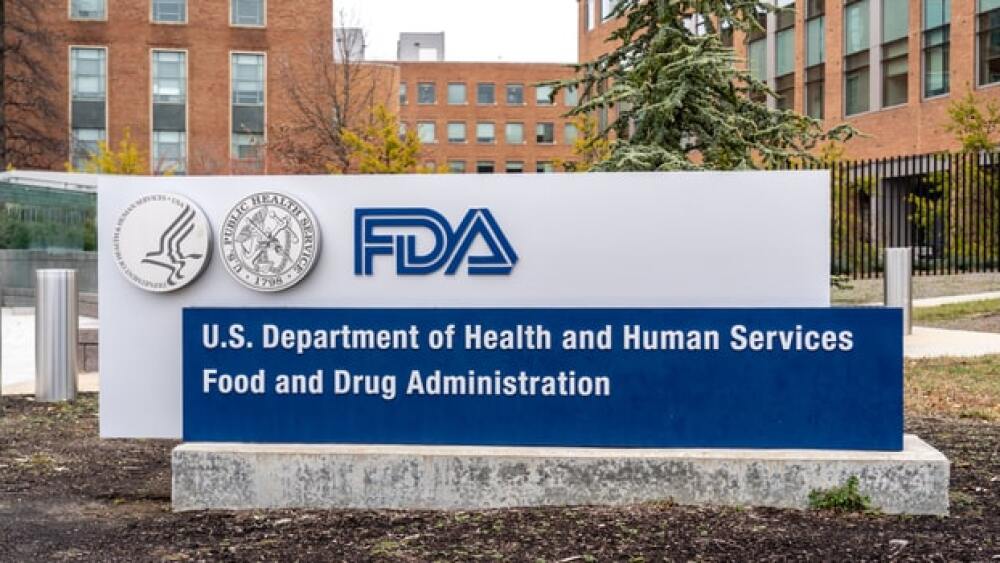Wednesday’s FDA approval expands Mirum’s Livmarli into the rare genetic disorder that causes progressive liver disease. The biotech has also filed a supplemental New Drug Application for a higher dose of the drug and allowing its use in younger patients.
Pictured: FDA signage at its Maryland campus/iStock, hapabapa
The FDA on Wednesday approved Mirum Pharmaceuticals’ Livmarli (maralixibat) for the oral treatment of cholestatic pruritus in patients with progressive familial intrahepatic cholestasis that are five years of age and older.
The California-based biotech also announced that it has filed a supplemental New Drug Application (sNDA) seeking approval for a higher concentration formulation of Livmarli for younger patients with progressive familial intrahepatic cholestasis (PFIC), a rare genetic disorder that causes progressive liver disease and can lead to significant morbidity and mortality. Mirum hopes to introduce this higher-concentration regimen later this year, according to its announcement.
Mirum CEO Chris Peetz said in a statement that Livmarli could have “transformational impact for patients with cholestatic pruritis associated with PFIC” and provides an effective treatment option for those afflicted with the disease’s rarest subtypes.
The FDA’s decision is backed by data from the Phase III MARCH trial, which according to Mirum’s announcement is the “largest randomized clinical trial conducted in PFIC.” MARCH enrolled 93 patients across the several different genetic subtypes of PFIC, including those with unidentified mutational status.
Results showed that Livmarli was able to significantly improve pruritus symptoms in treated patients, as well as concentrations of serum bile acids and bilirubin. Patients in the livmarli arm also showed significantly better growth versus placebo.
Mirum’s sNDA for PFIC, which the FDA accepted in February 2023, also included data from the phase II INDIGO study, which focused on patients with the PFIC2 genetic subtype. Responders, as determined by serum bile acid levels, had better transplant-free survival.
Designed to be orally available, Livmarli is a selective inhibitor of the ileal bile acid transporter. The drug’s mechanism of action is not yet completely understood, but according to its label Livmarli reduces the overall reabsorption of bile acids from the terminal ileum. The FDA first approved Livmarli in September 2021 for the treatment of cholestatic pruritus associated with Alagille syndrome.
Mirum’s main competitor in the PFIC arena is Ipsen, which acquired the AstraZeneca spin-off Albireo in January 2023 for $952 million. The deal introduced Bylvay (odevixibat) into the Ipsen fold.
Bylvay, also an ileal bile acid transporter inhibitor, was first approved in July 2021 and became the first drug authorized to treat PFIC patients. Unlike Livmarli, Bylvay can be given to children as young as three months of age but is also administered at a much lower dose of 40 mcg/kg. Livmarli’s recommended dosing is 380 mcg/kg.
In June 2023, the FDA expanded Bylvay’s label, allowing it to be used as a treatment for patients with chronic pruritus related to Alagille syndrome.
Tristan Manalac is an independent science writer based in Metro Manila, Philippines. Reach out to him on LinkedIn or email him at tristan@tristanmanalac.com or tristan.manalac@biospace.com.






